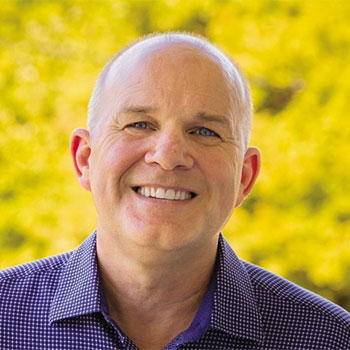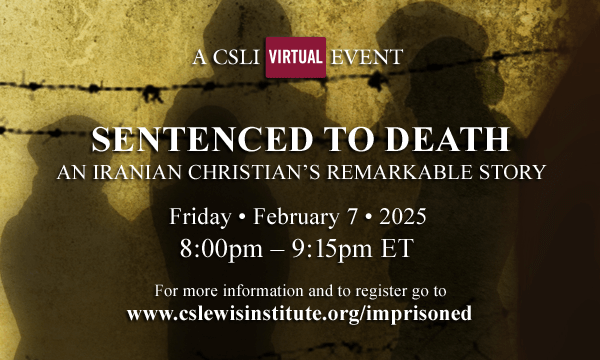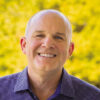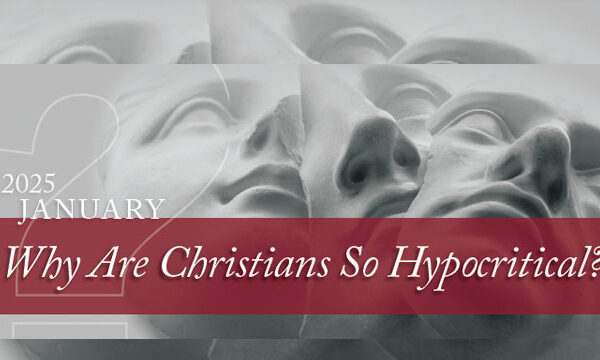Back to series



Wise Christians Clip Obituaries
I was puzzled by my reaction as I watched the sportscaster wave goodbye to the camera. I rarely watched his sportscast, but like many of the people in the Washington, D.C., area, I was moved by news of his death. I listened as radio talk-show hosts devoted entire mornings to the story. Local newspapers gave him a week’s worth of obituaries. His station ran a half-hour memorial program—the show I was watching. He waved to the camera, walking, symbolically, into the shadows. It was ironic that in a city dubbed the murder capital of the nation, in which victims of violent crime die every day, the passing of one 44-year-old-man would cause such a stir.
As people called talk shows to express their shock, I heard a refrain: “It was so unexpected. He was so young, in such good health, and then all of a sudden.... I just can’t believe it.”
Perhaps what affected us was not just who died, but death itself. It came as an unexpected intruder, reminding us that death does not always wait until people are in their nineties. What bothered the city—what bothered me—was the rudeness of death’s intrusion. Many people occasionally sneak a peek at the obituaries and look at the ages of those who have died. But when we see somebody our own age, or even younger, we wince. We are forced to admit that death does not have to ask our permission. Death is coming. Every day is somebody’s last.
Some of us choose to confront such uncertainty by ignoring or denying this reality. The teaching of the ancients calls us to a different response. The classical spiritual-life writers found great spiritual benefit in looking death in the face, seizing its reality, and making it their servant. They used death to teach them how to live.
François Fenelon, a seventeenth-century French mystic who wrote the classic Christian Perfection, spoke eloquently of the denial of death:
We consider ourselves immortal, or at least as though
[we are] going to live for centuries. Folly of the human spirit! Every day those who die soon follow those
who are already dead. One about to leave on a journey ought not to think himself far from one who went only
two days before. Life flows by like a flood.
Most of us recognize that we will eventually die, but this recognition is reserved for a distant event, decades from now, not today, this week, this month, this year. Death is a foreigner, not a close neighbor. Or so we live our lives, clutching fiercely to this illusion.
How else can we explain the fact that so many die without a will? We live without a will not because we believe we’ll never die, but because we don’t expect to die this week. Thus, we have more important tasks to take care of, meetings to attend, things to buy, decorations to hang.
Remembrance of Things Future
Why do we deny death? Fenelon believed we avoid the thought of it so we are not saddened by it. But this, he says, is shortsighted: “It will only be sad for those who
have not thought about it.”
William Law, the eighteenth-century Anglican author of A Serious Call to a Devout and Holy Life, wrote that the living world’s brilliance blinds us from eternity and the reality of death. “The health of our bodies, the passions of our minds, the noise and hurry and pleasures and business of the world, lead us on with eyes that see not and ears that hear not.”
Part of this denial comes from the company we keep. While going through college and seminary, I attended the same church for seven years. The congregation was predominantly young. During those seven years, one person died, and it was big news.
My first position after seminary was in a more historic church with a mostly older congregation. While my first church required two rooms to hold all the babies in nursery, this one was lucky to have a handful. During my first six months, there were three funerals.
Young people may forget that funerals are waiting on the other end of weddings and baby showers. When we segregate ourselves—when we don’t know anyone who is suffering from arthritis or Alzheimer’s—we can be lulled to sleep. It is this unexpectedness of death that should encourage us to take a second look, to reconsider our pleasant denial, to admit that, yes, death might visit us as early as this week.
Gen. William Nelson, a Union general in the Civil War, was consumed with the battles in Kentucky when a brawl ended up in his being shot, mortally, in the chest. He had faced many battles, but the fatal blow came while he was relaxing with his men. As such, he was caught fully unprepared. As men ran up the stairs to help him, the general had just one phrase, “Send for a clergyman; I wish to be baptized.”
He never had time as an adolescent or young man. He never had time as a private or after he became a general. And his wound did not stop or slow down the war. Everything around him was left virtually unchanged—except for the general’s priorities. With only minutes left before he entered eternity, the one thing he cared about was preparing for eternity. He wanted to be baptized. Thirty minutes later he was dead. How was this general served by the remembrance of death? Hardly at all, because he remembered it too late.
To help us avoid such oversight, Thomas à Kempis urged, “Thou oughtest so to order thyself in all thy thoughts and actions, as if today thou wert about to die” (The Imitation of Christ).
As Vice President in the nineteen eighties, George H.W. Bush represented the United States at the funeral of former Soviet leader Leonid Brezhnev. Bush was deeply moved by a silent protest carried out by Brezhnev’s widow. She stood motionless by the coffin until seconds before it was closed. Then, just as the soldiers touched the lid, Brezhnev’s wife performed an act of great courage and hope, a gesture that must surely rank as one of the most profound acts of civil disobedience ever committed: She reached down and made the sign of the cross on her husband’s chest.
There, in the citadel of secular, atheistic power, the wife of the man who had run it all hoped that her husband was wrong. She hoped that there was another life, and that that life was best represented by Jesus who died on the cross, and that the same Jesus might yet have mercy on her husband. Will our spouses make a similar, desperate act, signifying that everything we lived for was misguided, but offering hope that God might have mercy on us anyway?
The thought of death came too late for an American Civil War general and a Soviet head of state—will it come too late for us?
John Climacus, a seventh-century ascetic who wrote Ladder of Divine Ascent, urged Christians to use the reality of death to their benefit: “You cannot pass a day devoutly unless you think of it as your last,” he wrote. He called the thought of death the “most essential of all works” and a gift from God. “The man who lives daily with the thought of death is to be admired, and the man who gives himself to it by the hour is surely a saint.”
Remembrance of death acts like a filter, helping us to hold on to the essential and let go of the trivial. John Climacus pointed out that a “man who has heard himself sentenced to death will not worry about the way theaters are run.”
Turning Everything Right-Side Up
Forgetting death tempts us to lose perspective. Thinking about eternity helps us retrieve it. I’m reminded of this every year when I figure my taxes. During the year, I rejoice at the paychecks and extra income, and sometimes I flinch when I write out the tithe and offering. I do my best to be a joyful giver, but I confess it is not always easy, especially when there are other perceived needs and wants.
At the end of the year, however, all of that changes. As I’m figuring my tax liability, I wince at every source of income and rejoice with every tithe and offering check—more income means more tax, but every offering and tithe means less tax. Everything is turned upside down, or perhaps, more appropriately, rightside up.
I suspect judgment day will be like that. Those things that bother us now, that force us out of our schedules—taking time out to encourage or help someone—will be the very things that we deem the most important. We may not remember the movie we skipped to paint that elderly person’s house, or the meeting we missed to visit that prisoner or sick person, but in eternity, we will remember the acts of kindness and love, and we will be glad we took the time to do them.
Death not only filters our priorities, it also filters our passions. In his Pensées, seventeenth-century French mathematician and theologian Blaise Pascal wrote, “To render passion harmless let us behave as though we had only a week to live.” All of us are captive to various passions, some good, some bad. Which ones will we follow?
William Law suggests we pick and choose according to how we will feel upon our death.
The best way for anyone to know how much he ought to aspire after holiness is to consider not how much will
make his present life easy, but to ask himself how much he thinks will make him easy at the hour of death.
What men or women in their right minds would continue an affair if they really believed they might not wake up in the morning? What person would risk entering eternity in a drunken stupor? What fool would ignore his loved ones and God for one last night so that he could make another quick ten thousand just before he died?
Thomas à Kempis agreed with such reasoning, arguing that the remembrance of death is a powerful force for spiritual growth:
Didst thou oftener think of thy death than of thy living long, there is no question but thou wouldst be more
zealous to improve. If also thou didst but consider within thyself the infernal pains in the other world, I believe
thou wouldst willingly undergo any labor or sorrow in this world, and not be afraid of the greatest austerity.
But because these things enter not to the heart, and we still love those things only that delight us, therefore we
remain cold and very dull in religion.
When we schedule our priorities and follow our passions without regard to eternity, we are essentially looking into the wrong end of a telescope. Instead of seeing things more dearly, our vision becomes distorted. We miss the big picture. Law wrote:
Feasts and business and pleasures and enjoyments seem great things to us whilst we think of nothing else;
but as soon as we add death to them, they all sink into an equal littleness; and the soul that is separated from
the body no more laments the loss of business than the losing of a feast.
It is only the denial of death that allows us to continue rebelling against God. It is only because we are presuming on some future time to set things right that we ever even consider letting them go wrong. Some of us will be surprised in our presumption; eventually our spirits will be dulled until we forget we are presuming, and death will catch us by surprise, like all the rest.
That is why Thomas à Kempis urged, “Labor now to live so, that at the hour of death thou mayest rather rejoice than fear.” That hour is coming. If it comes tonight, will you be able to rejoice at your state? Or does the mere thought strike fear into your soul? More is involved than just our eternal destiny. God’s mercy may well pass us into his eternal presence, but do we want to enter heaven after faithfully serving God to the best of our ability, or rather after some desperate, last-minute confession, realizing that we have wasted our life?
I want to enter death tired. I want to have spent what energy God has apportioned me. The cross country races that were most satisfying to me were not the ones I won most easily, but the ones that took everything I had to win. Weariness produced by hard, diligent labor is a reward, not a curse. An eternal rest awaits all who know Christ, so why are we preoccupied with rest now?
Death becomes our servant, then, when we use it to reorder our priorities and to grow in grace and holiness. There is yet one more way we can use death to our benefit.
Death Can Be a Comforter
Death can be a consoling thought for those who face particularly difficult losses or trials. The lost loved one that we miss so much is waiting for us on the other side of time. Our broken down body will not greet us in heaven. Instead, we will rejoice to meet a “new and improved” version without the aches and pains and propensity to sin.
And even more important, death ushers us face to face into the presence of the one our heart cries out for, the one, true God, and this is our greatest consolation. Any sincere Christian experiences at least a certain degree of loneliness, for we long for a more intimate walk with our God—a walk that will be realized beyond our dreams once we pass the threshold of eternity.
It is normal and healthy to experience the pain of death—Jesus, after all, cried at the death of Lazarus—but death can also bring hope, not for what it is, but for what God promises us on the other side. The Christian life does not make complete sense without the consoling thought of eternal life. Paul himself said we should be pitied above all if the Christian faith is only for this temporal world (1 Cor. 15:19).
Because of Christ, because of the Resurrection, because of the goodness and mercy of God, death, our enemy, can be a consoling thought. There will be an end to our struggle for righteousness; a limit has been placed on our pain; our loneliness will not go on forever. Another world is coming.
Keeping Death Alive
Back when I lived in Virginia, I occasionally attended weekday noon Communion services at The Falls Church Episcopal, which dates back to the eighteenth century. As is not uncommon with older churches, the building is surrounded by a graveyard. Whenever I attended those services, I walked through the grave markers on my way in, and past them on my way out.
That short walk did almost as much for me as the service. I was reminded as I faced the second half of the week that one day, my body, my bones, would be lying in the ground. My work on earth will be done.
What will matter then? What should matter now in light of then? I am fond of old graveyards—not out of morbid preoccupation, but because they inspire me as few other things can. I want to use death the way Thomas à Kempis used death:
Happy is he that always hath the hour of his death before his eyes, and daily prepareth himself to die....
When it is morning, think thou mayest die before night; and when evening comes, dare not to promise
thyself the next morning. Be thou therefore always in a readiness, and so lead thy life that death may never
take thee unprepared.
Another way that I keep death alive is by living in the communion of saints. I will post a picture or a quotation here or there of someone whose faith and life has encouraged me, as a reminder that work has an end. If the world can get by without a Dietrich Bonhoeffer or a Blaise Pascal, it can get by without me, and one day it will. I have a limited time to use that may be much shorter than I realize—neither Bonhoeffer nor Pascal made it into his forties.
When a contemporary saint dies, I live with their death for weeks. I admire them for what they have done, and I thank the God who conquered their rebellion and blessed them with the call to become his servants. Wise shoppers clip coupons. Wise Christians clip obituaries.
But the supreme way for a Christian to keep the thought of death alive is to remember the crucifixion of our Lord. Every time we take Communion we should do so with the awareness that just as Christ’s work on earth had a beginning and an end (as he ministered in a human body), so the mission he has given us has a beginning and an end. “Death is the destiny of every man,” said the writer of Ecclesiastes, “the living should take this to heart” (7:2, NIV).
Gary Thomas is a writer and the founder and director of the Center for Evangelical Spirituality, a writing and speaking ministry that integrates Scripture, church history, and the Christian classics. His books include Authentic Faith, Sacred Marriage, The Glorious Pursuit, Sacred Pathways, and Seeking the Face of God. Gary has also written with Chuck Colson, Franklin Graham, Michael W. Smith, and Senator John Ashcroft. He has had over 95 articles published by numerous national magazines, including Christianity Today, Decision, and Discipleship Journal. Gary earned his B.A. in English from Western Washington University and M.A. with a concentration in systematic theology from Regent College, Vancouver, B.C. Gary is married, has three children, and lives in Bellingham, Washington.

Gary Thomas
PastorGary Thomas received a Bachelor of Arts degree in English literature from Western Washington University in 1984. He studied under the Christian theologian J. I. Packer at Regent College in Vancouver, British Columbia, receiving a master's degree in 1988 in systematic theology. He was awarded an honorary Doctor of Divinity degree from Western Seminary in Portland, Oregon, in 2006 in recognition of his contributions made in the field of spiritual formation. Thomas is a regular teaching pastor at Second Baptist Church Houston, the fourth-largest church in the United States in 2013, with over 21,000 in weekly attendance. Thomas is the author of 20 published books. His most notable works include Sacred Marriage, Sacred Pathways, and Authentic Faith.

 COPYRIGHT: This publication is published by C.S. Lewis Institute; 8001 Braddock Road, Suite 301; Springfield, VA 22151. Portions of the publication may be reproduced for noncommercial, local church or ministry use without prior permission. Electronic copies of the PDF files may be duplicated and transmitted via e-mail for personal and church use. Articles may not be modified without prior written permission of the Institute. For questions, contact the Institute: 703.914.5602 or email us.
COPYRIGHT: This publication is published by C.S. Lewis Institute; 8001 Braddock Road, Suite 301; Springfield, VA 22151. Portions of the publication may be reproduced for noncommercial, local church or ministry use without prior permission. Electronic copies of the PDF files may be duplicated and transmitted via e-mail for personal and church use. Articles may not be modified without prior written permission of the Institute. For questions, contact the Institute: 703.914.5602 or email us.
-
Recent Podcasts
From Anti-Christian to Pastor – Brian Smith’s Story
by Jana Harmon, Brian Smith on January 17, 2025Brian grew up in a small Georgia town...Read More
-
Time With God
by Aimee Riegert, J.I. Packer on January 10, 2025
-
Faith and Reason – Henare Whaanga’s Story
by Henare Whaanga, Jana Harmon on January 3, 2025
-
Recent Publications
Why Are Christians So Hypocritical?
by Christopher L. Reese on January 1, 2025Oh, the hypocrisy of those Christians—they talk so...Read More
-
How Artists and Their Art Can Point Us to the Creator
by Russ Ramsey on December 2, 2024
-
What about Jesus’s Childhood?
by Jim Phillips on December 1, 2024
0
All Booked
0.00
All Booked
0.00
All Booked
23931
GLOBAL EVENT: Sentenced to Death with Maryam Rostampour-Keller, 8:00PM ET
https://www.cslewisinstitute.org/?event=global-event-sentenced-to-death-with-maryam-rostampour-keller-800pm-et&event_date=2025-02-07®=1
https://www.paypal.com/cgi-bin/webscr
2025-02-07

Next coming event
Days
Hours
Minutes
Seconds
GLOBAL EVENT: Sentenced to Death with Maryam Rostampour-Keller, 8:00PM ET
On February 7, 2025 at 8:00 pmSpeakers

Gary Thomas
Pastor
Team Members

Gary Thomas
PastorGary Thomas received a Bachelor of Arts degree in English literature from Western Washington University in 1984. He studied under the Christian theologian J. I. Packer at Regent College in Vancouver, British Columbia, receiving a master's degree in 1988 in systematic theology. He was awarded an honorary Doctor of Divinity degree from Western Seminary in Portland, Oregon, in 2006 in recognition of his contributions made in the field of spiritual formation. Thomas is a regular teaching pastor at Second Baptist Church Houston, the fourth-largest church in the United States in 2013, with over 21,000 in weekly attendance. Thomas is the author of 20 published books. His most notable works include Sacred Marriage, Sacred Pathways, and Authentic Faith.





